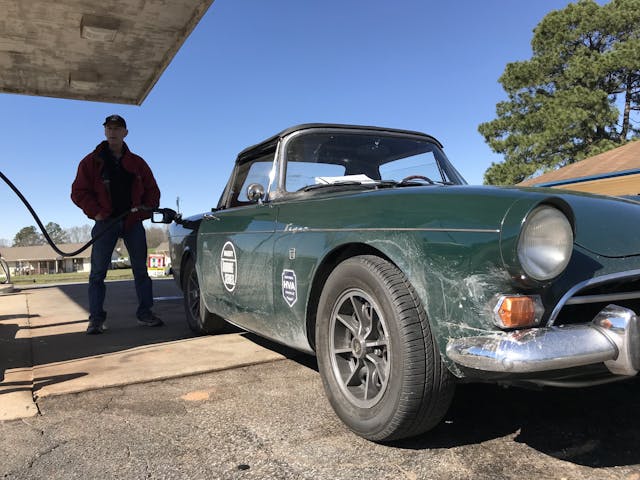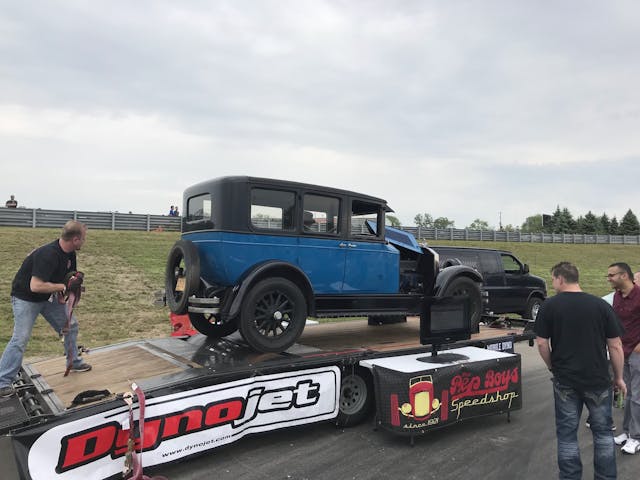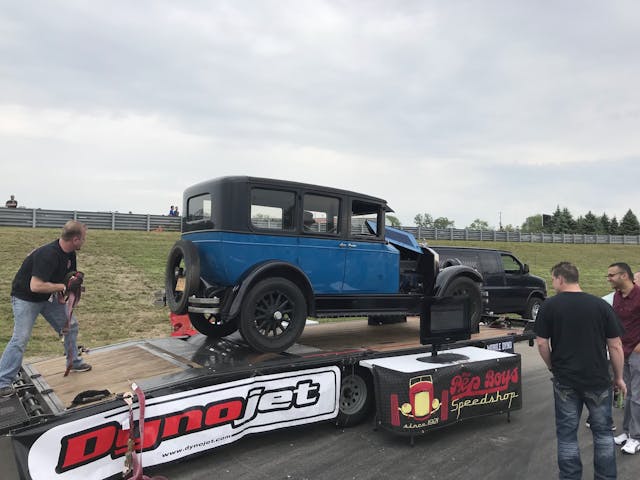7 numbers you should know about your car
Cars are utility objects first. They serve to allow us easier movement over great distances. The inherent mechanical intricacy and unique experience of driving caused users to morph into enthusiasts. Those folks dedicated to the joy of driving and maintaining these automobiles can obsess over so many small parts and details of their machines. Even the casual enthusiast knows a few little details of their car that they enjoy conversing about.
Those details can be quite banal, or very much intriguing. It really depends on how deep your knowledge of the automobile and its history is. To cover the basics:
Minimum octane rating

Engines are surprisingly durable, but also require particular care and feeding. The minimum octane rating refers to the proper fuel that the engine is tuned to run on. Most fuel stations have options for 87, 89, 91, or 93 octane, with each number referring to the fuel blends resistance to detonation as it is compressed in the combustion chamber of an engine. The higher the better right?
Wrong. Engines are tuned for certain octane ratings and putting high octane in something that does not need it will not give you more power or a cleaner engine. In fact, it’s possible the engine will run worse, and it will certainly cost you more at the pump. There is a balance though. If you put lower octane fuel than required it will certainly yield less power and can even lead to damage as the fuel can ignite before the spark plug fires, which can damage the piston, connecting rod, or cylinder head as the still-rising piston attempts to compress the expanding fuel and air mixture. Not good. We go through the effort to use the proper oil for the engine, so make sure you are using the proper fuel too.
Fuel range (ballpark)
On a long enough timeline everything fails, including your gas gauge or sending unit. When the needle stays at full or just drops like a stone to zero, do you know you can make it home? Knowing the ballpark range your car can travel on a full tank of gas is a good thing to know if you drive your vintage car regularly. Having non-working gauges is embarrassing, but running out of gas is even more so.
Start by doing a quick miles-per-gallon calculation by filling your fuel tank, driving for a weekend, then topping off and dividing the miles you covered by the number of gallons required to re-fill the tank. That can be the basis of calculating range using the fuel tank size and ballpark MPG. Be sure to leave some wiggle room in the final fuel range for conditions to change.
Horsepower

Opening the hood of a car is often like rubbing a genie lamp: Someone will always appear, but instead of giving you wishes they will pepper you with questions. The most popular one you should expect to hear? “How much power does this thing make?”
It can be both an easy and a hard question to answer. You could go by the original rating from promotional materials, or look for similar builds that have been tested on a dynamometer, or if your engine is unique enough it would probably be fun to strap it down on the rollers and find out the exact power, along with just how well tuned the package is.
Ballpark value
We know you aren’t planning on selling your car. Money talks sometimes though, and your author has experienced at least one situation where a person approached while out and about and made an offer to buy the motorcycle that got me there. It was a real offer and if I hadn’t known what the bike was actually worth I probably would have taken it. Values change over time and can sometimes move quite quickly. Be sure to know what you are driving and treat it appropriately. You might have bought it for $1500, but that was 1988 and things are different now. Luckily, finding your car’s value has never been easier.
Vehicle identification number

It sounds funny, but having the main identifying information for your car is important. Not only in case of theft, but also in case you need to find information about the history of your baby. This one doesn’t need to live in your head, but keep an old insurance ID card in a file at home even if you sell the car. People go looking for the car from their past all the time and with the VIN you stand a chance, without that bit of information it can be close to impossible to find a car from 20 years ago.
Generation years of your model

The total production run is a fun fact that is easy to pepper into a conversation about a car that can often elevate someone’s perception of you nearly instantly. People will often walk up and make a guess as to the year of a car and in our experience, it can sometimes be a little rough. “Is that a ’64?” “No, it’s a 1960, but the body is the same so it’s tough to tell” is a lot nicer way to tell someone they are wrong and start a conversation on the right foot than just saying “no.” Total production is a fun one to add to this conversation if you happen to have a steel trap memory and can keep track of something like that.
Normal oil pressure

Just like people, every engine is unique and that includes how much oil pressure it makes while running. Oil is the lifeblood of an engine and knowing that there is the proper amount circulating is peace of mind worth having. We admit most cars don’t have an oil pressure gauge with hard and fast numbers, but installing one is never a bad idea as it can alert you to something being wrong in your engine before it turns into catastrophe. Keep an eye on those gauges and shut the engine down quickly if something looks wrong. Better safe than sorry.
Check out the Hagerty Media homepage so you don’t miss a single story, or better yet, bookmark it.



That satifying feeling of being pushed back into the seat is torque, the blue lights in your mirror is horse power.
Had an aftermarket amp meter previous owner installed in my first car. One day jumped in and turned key on. Smoked poured out under dash and hood. Opened hood and a wire running along fender well and firewall was glowing orange. Think it finally melted thru and disconnected from power source. Luckily no damage to other wires. Also I didn’t have a fire extinguisher on hand. Car could’ve burned to the ground. My lucky day. I have a fire extinguisher mounted in my hotrod nowadays
I’ve been looking for my Boss 351 with no luck, I have the vin and a 2014 Illinois plate number. How cani find this car? Thanks, Chuck
So many experts, why do we have engineers?
As a retired engineer, I can attest that we are often overruled by the bean counters.
Once you own the car, your own engineering skills can be put to use, and you count your own beans.
When people ask me about what the HP of my 1977 280z, I generally say that I know what the sales brochure says, but I also know that any self-respecting minivan will outrun it.
What about firing order, initial timing and total timing?not much else happens without those.
Given the irregularity that most would need those numbers you called out, I would categorize those as ones that owners should know where to find them when needed rather than ones to have committed to memory.
Horsepower sells cars..Torque wins races.
Per Bill Ford. And it is true…
towing capacity – or in many cases, your car is too wimpy to risk pulling anything